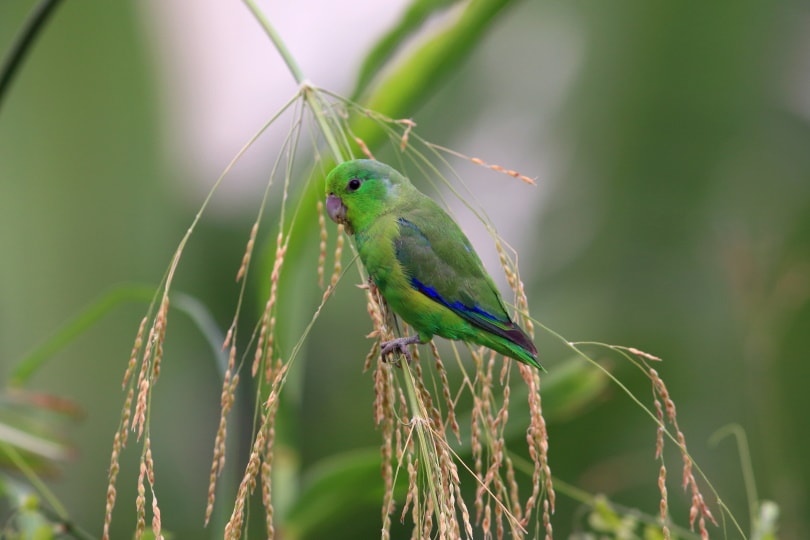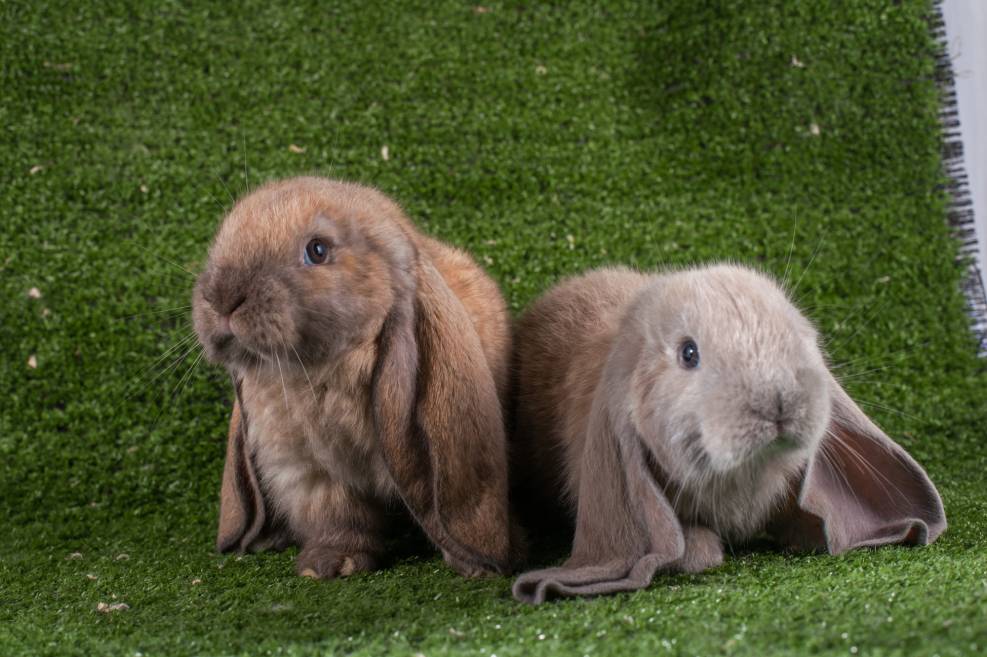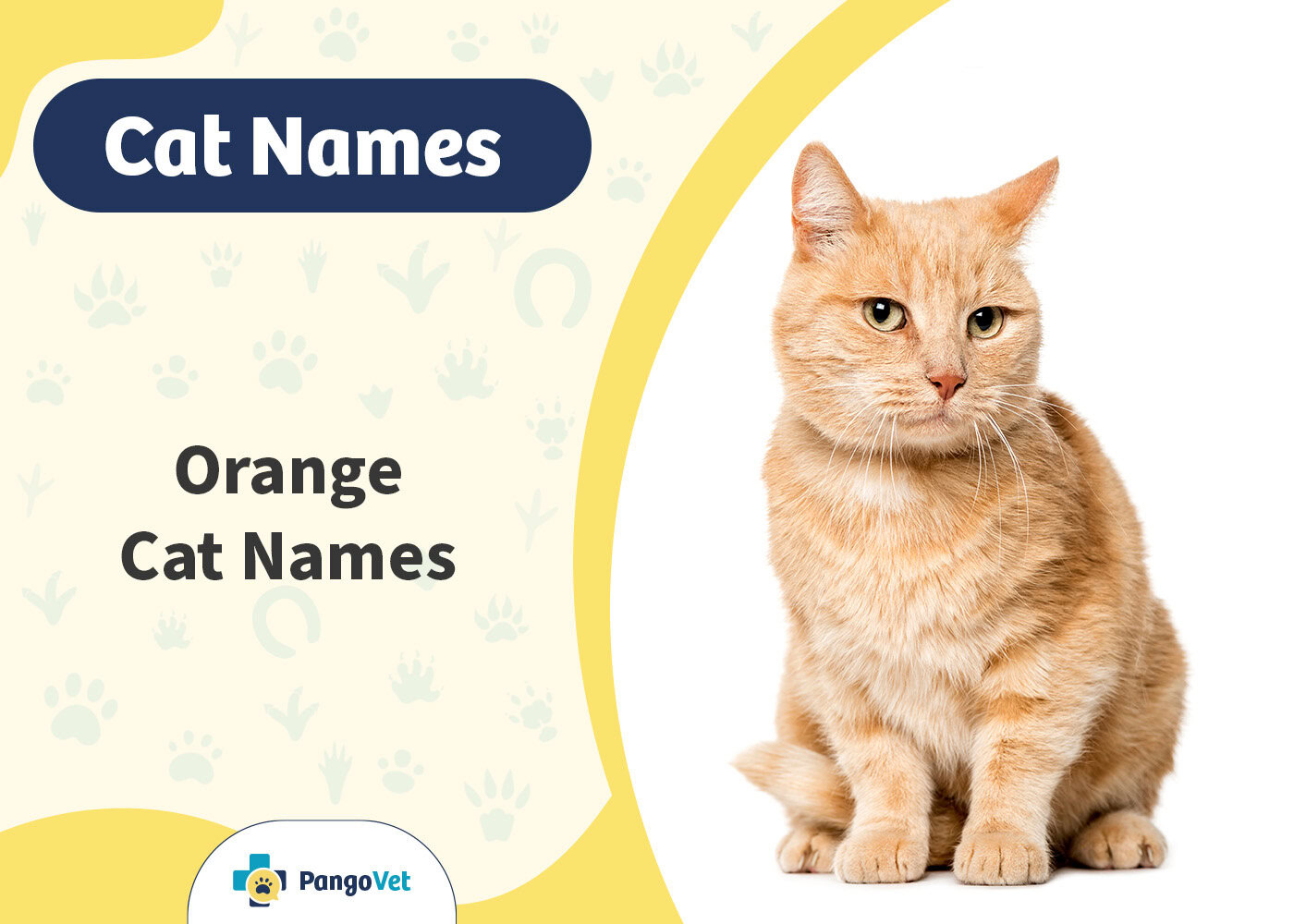Click to Skip Ahead
If you are looking for a spirited bird in a compact package, you might want to check out the parrotlet. Parrotlets are the smallest parrots that you can find at most local pet shops, earning them the nickname of “pocket parrots.”
These tiny birds have a larger-than-life view of things, and they definitely think that they’re the boss! They can be choosy about whom they interact with, though, so be prepared to potentially not be the favorite in your home. However, with enough socialization, any parrotlet can make a fantastic pet for the right family.

Types of Parrotlets
There are tons of parrotlet types from tropical locations all over. Each has their own unique looks and colorations. Here are a few honorable mentions:
- Pacific parrotlets
- Blue-winged parrotlets
- Mexican parrotlets
- Spectacled parrotlets
- Albino parrotlets
- Blue parrotlets
Many other parrotlets exist but are not as common as pets.
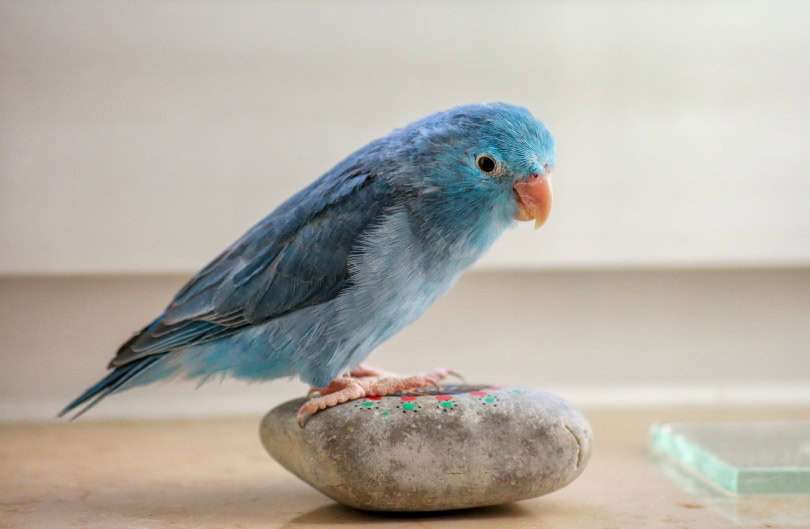
Parrotlet Personality
Parrotlets can be cheerful and adventurous. They want to be a part of your everyday living and will happily engage with you out of their enclosure. They love to be in on all the daily gossip, so be prepared to spend a lot of time with this pet.
These cuties are loyal and affectionate. However, they do require everyday handling. The younger your parrotlet is upon purchase, the stronger your bond will be.
Don’t let their sweet little faces fool you—these little birds can be downright vicious sometimes. They are highly territorial and aggressive if they feel threatened. They also don’t like constructive criticism much and will be happy to challenge any authoritarian figure.
The more you socialize with your parrotlet, the happier they will be. However, that does not mean that they will be tolerant of just anyone. They will pick and choose who makes the cut, so certain family members will learn to steer clear soon enough.
We should also mention that they bond incredibly well with one another. If you have more than one parrotlet, it might cause some friction between you and your parrots. They tend to prefer their own kind, so that might interfere with your connection.
Naturally, it depends on their individual personality. Some parrotlets are sweeter than others. But frequent handling is a must, or else these little birds can lose the bond that they have with you quite quickly.
Parrotlet Intelligence
Even though these birds are small, they have an intelligence that’s on the same level as their larger parrot cousins. A major difference is that many large parrots are quite vocal and noisy. Parrotlets tend to be quiet in comparison.
They are capable of understanding complex concepts and will benefit from mental stimulation and advanced training.
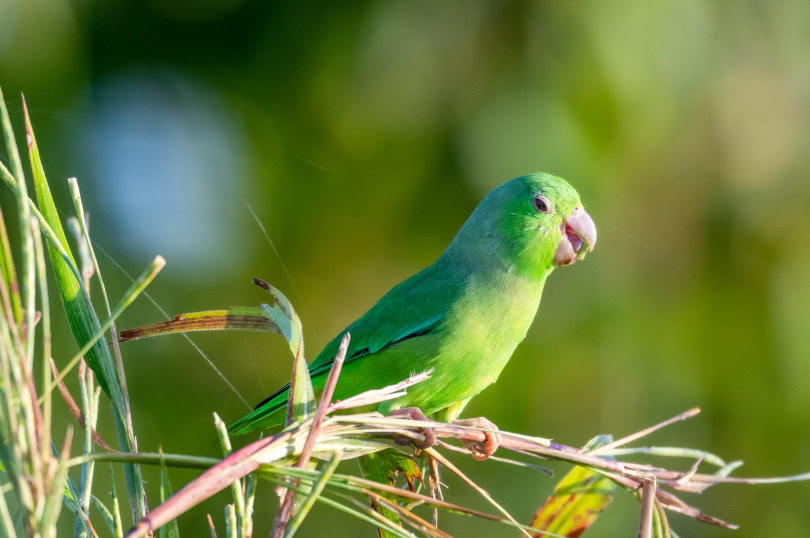

Parrotlet Care
Before you’re completely sold on this pocket parrot’s personality, it’s best to keep in mind the kind of care they will require. Don’t let their small stature fool you—these animals still need the proper space and diet to stay healthy and happy.
Enclosure
One of the good things about having a parrotlet is the fact that they are so small. Many large parrots require a sizable enclosure, which not all homes can accommodate. A parrotlet needs a much smaller space, but one that is still large enough for them to be able to stretch their wings, literally and figuratively.
Your parrotlet will need a space with minimal measurements of 18 by 18 inches. You should increase the size of the enclosure with each parrotlet you introduce.
Diet
Parrotlets, like many birds, are herbivores. Their diet should be 45% pellets, 25% low-fat seed mix, and the remainder being various grass seeds, fruits, and veggies. Since these birds are small, they don’t require a lot of food, which can be appealing for people looking to save money on parrot ownership.
If you offer fruits and veggies to your parrotlet, make sure they’re on a “safe for parrotlets to eat” list. Also, always thoroughly wash the vegetables and fruits to remove any dirt, debris, and pesticides.
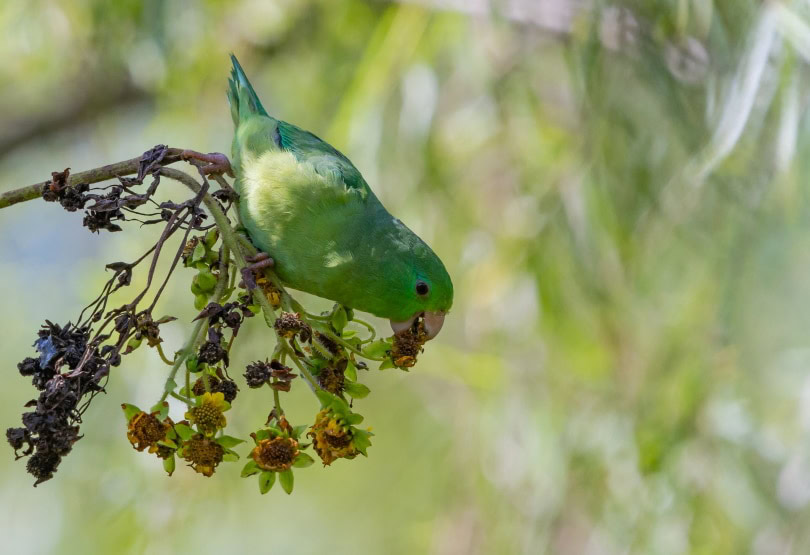
Grooming
When it comes to traditional grooming, you don’t have a lot of work to do here. All you have to do is fill up a shallow, lukewarm bowl of water that your bird can’t tip over. Your parrotlet will gladly hop in and do all the grooming and cleaning themselves.
However, it is your responsibility as a bird owner to ensure that their flight wings are trimmed appropriately. If you don’t trim them every 6 weeks, they will grow back, and your bird will regain flight ability. This can cause them to seriously injure themselves, and it can also cause unwanted escapes.
If you don’t feel comfortable performing this yourself, you can always consult your avian veterinarian for guidance.
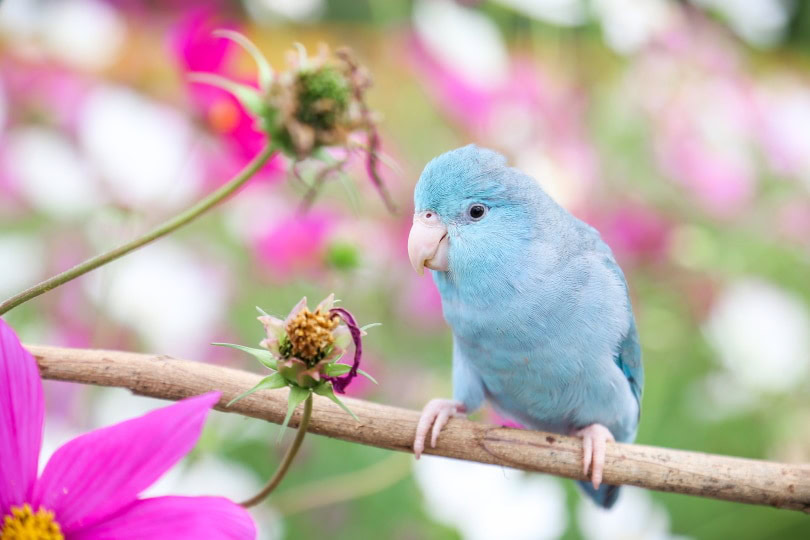
Health Issues
If you care for your parrotlet properly, they can live up to 30 years in captivity. As long as you closely monitor their behavior, provide them with a proper diet, and give them lots of overall care and attention, you should have a happy bird. However, sometimes the unexpected can crop up.
As with any other animal, your parrotlet is prone to specific health issues. To avoid any progressive illnesses, constantly monitor your parrotlet’s behavior, and get them to the vet right away if you think that there is something wrong.
- Egg binding
- Cancer
- Malnutrition
- Infectious diseases
- Giardia
- Parrot fever
Many birds don’t show clinical signs until the sickness is advanced. So, if you notice signs like lethargy, diarrhea, lying on the bottom of the cage, or lack of appetite, it’s time to act quickly.

Breeding
Parrotlets are challenging to breed in captivity. We recommend avoiding this unless you are an experienced hobbyist.
Both birds should be at least 1 year of age prior to breeding. Once breeding commences, the female’s vent becomes swollen before laying her clutch. A single parrotlet can lay up to 10 eggs per clutch, but six is a good average. She will lay a new egg every other day until her cycle is complete. After an incubation period of roughly 18 days, the babies emerge from their eggs.

Conclusion
Although these pocket parrots can be challenging to own (especially if you’re unfamiliar with the species), they can be incredibly rewarding. Just make sure you have the space, patience, and commitment to care for these beautiful little creatures before bringing them home.
Parrotlets are colorful in both personality and feathering. Do they sound like one would make a good match for you?
- Related read: Where Should You Buy a Parrotlet?
Featured Image Credit: Rafael Cerqueira, Shutterstock
